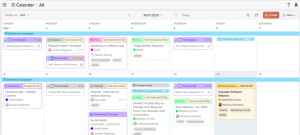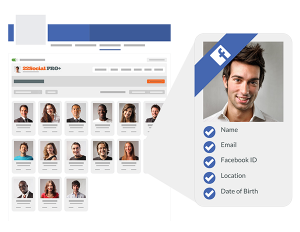When it comes to getting more traffic to your website, search engine optimisation is still king. Good SEO is one of the most efficient and effective ways for businesses and organisations to drive visitors to their websites. More visitors = more revenue (assuming you convert!).
Though most companies know that backlinks, great content and effective on-page SEO are important for improved organic performance, fewer realise just how crucial site speed is to the ranking of a webpage.
If you want to improve your webpage’s rankings to increase visitors, addressing the speed at which your site loads is essential. If you’re not convinced, keep reading to find out just how site speed can affect your user experience and increase your organic SEO performance.
How fast is fast?

In the early days of the web, when logging in to check your emails meant listening to your modem dial up the internet and you couldn’t use your phone and your browser at the same time, users had almost endless patience when it came to site speed.
Thankfully, times have changed and these days most pages load in a matter of seconds. In fact, as site loading times have become faster, our patience has decreased, with 47% of web users now expecting a site to load in under two seconds.
In reality, loading times vary considerably across the web. According to research, 0.1 seconds is the time limit for a user to feel that the system is responding instantaneously to their request, one second is the limit for the user’s thought flow to remain uninterrupted as they wait for a site to load and 10 seconds is the limit for keeping the user’s attention fixed on the webpage and the task in hand.
If a page takes too long to load, the user will simply leave, with research showing that a huge 73% of users will leave a slow loading site in favour of a competitor’s site during peak times.
Speed and user experience

As internet enabled devices become faster and more advanced, users expect the web itself to follow suit. Slow loading websites are frustrating and distracting and can quickly interrupt the flow of a task and slow down a user’s online productivity.
Speed has become even more important as increasing numbers of people have switched to the mobile web, using their tablet computers or smartphones to browse website and social media instead of their laptop or desktop computer.
In an ideal world, websites should take no longer than two seconds to load on a mobile device. As mobile networks can be slower and less reliable than wired networks, this means that websites themselves have to be even faster and more streamlined.
The faster a website is, the more responsive it will feel to the user, giving them confidence in the site and increasing the chances that they will either make a purchase or return to the site in the future. There are many ways of increasing the speed of your website but part of the first step is choosing which server OS to use to host your website and finding which CMS platform might be best for your needs.
Speed and conversion rates

As well as enhancing user experience, quick loading pages are good for business.
Research has shown that just a one second delay in loading times can cost a business 7% of sales. Likewise, a US study revealed that 51% of online shoppers won’t complete a purchase if the eCommerce site that they are using loads too slowly. Speed isn’t the only thing that can impact conversion rates but it plays a big part.
In short, if a webpage loads slowly, customers are going to go elsewhere. So unless a company wants to hand business to their competitors, they need to ensure that their online shop or e-commerce site is as fast as possible.
Speed and SEO
Google is the biggest and most important search engine by a country mile. Therefore, what it says about SEO is pretty much law.
One of Google’s top priorities is to improve user experience and make the web a more convenient and intuitive place to be. If quick site load times affect user experience, then it’s understandable that Google use it as a factor in its all important algorithms.
Improving site speed won’t only nudge a website up the search engine rankings, it will also help to improve user experience, making a website more pleasant to use and helping businesses around the world to deliver a better service to their valued customers.
Digital & Social Articles on Business 2 Community(55)






